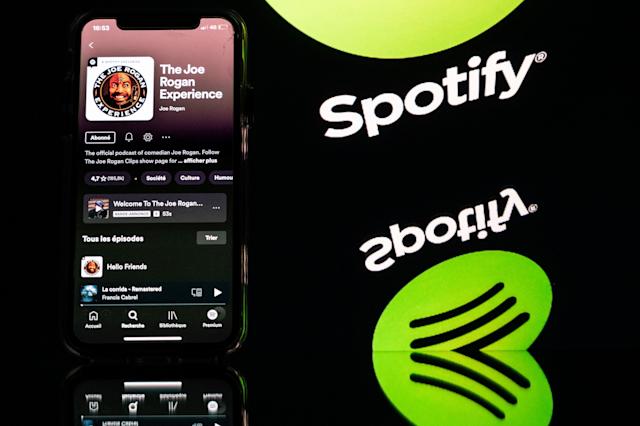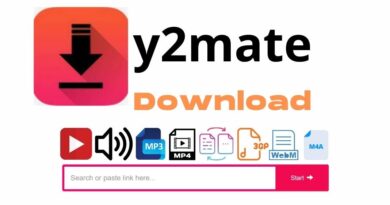Spotify Buys The Ringer, Bill Simmons, Joe Rogan, and More
Unless you’ve been living under a rock for the past few months, you’ve probably heard about the infamous Spotify kafkavox. The music streaming service has recently come under attack by a group of musicians, who are upset that it’s not allowing them to upload their music to it.
Did Spotify buy The Ringer?
Table of Contents
Earlier this week, Spotify announced that it has acquired The Ringer, a podcasting, and media company founded by ESPN personality Bill Simmons. The Ringer is a podcasting network that produces more than thirty shows. It has also established a film production division and book imprint.
Founded in March 2016, The Ringer is digital sports and culture outlet, led by Simmons. Bill Simmons left ESPN to start his own digital operation, and the company’s podcasts have become popular among sports and culture fans. In the last year, the Ringer has published nearly 40 podcasts, including the Bill Simmons podcast, which has been listed as the highest-paid podcast on Forbes’ list.
The Ringer’s podcasting revenues reached $15 million last year. In addition to its podcasts, the site also covers sports and culture. Its website is not as popular as competitors like Apple or Netflix, but it has more than four million visits a month.
The Ringer’s podcast network has more than 100 million downloads a month. The Ringer also has a production deal with HBO.
How much did Bill Simmons sell The Ringer for?
Earlier this month, Spotify announced that it will buy The Ringer, the online media outlet owned by former ESPN sports journalist Bill Simmons. The deal is expected to close sometime in the first quarter of 2020. It will cost Spotify between EUR 130 million and EUR 180 million in cash.
The Ringer boasts over 30 podcasts and has a website covering sports and pop culture. In addition, the company also houses a film production division.
The Ringer is a relatively new media outlet that was launched four years ago. The podcasts cover everything from sports to pop culture. It also includes a book imprint.
The Ringer’s “The Big Picture” podcast breaks into the top 100 on Podcharts. It is also the most downloaded sports podcast of all time. The Ringer is also home to a number of popular sports shows featuring Simmons.
The Ringer is the brainchild of former ESPN sports journalist Bill Simmons. He founded the website in 2016 after falling out of favor with ESPN bosses. His podcast has a listener base of over a million people. The Ringer also has a film production division that produced HBO’s “Andre the Giant” documentary.
How Rogan get Spotify deal?
Earlier this year, Spotify announced a deal with Joe Rogan that would make him the host of his own podcast. The agreement, which is likely worth more than $100 million, is a three-and-a-half-year licensing deal.
During the deal’s announcement, Spotify stated that “The Joe Rogan Experience” was the biggest podcast in the United States, with an estimated listenership of 11 million people. This figure is more than double the figure that was previously reported.
Spotify paid Joe Rogan at least $200 million to host his show. The deal includes a three-and-a-half-year exclusive license for the podcast. It also includes an exclusive content partnership with Kim Kardashian West, the Duke, and Duchess of Sussex and the Obamas.
Before the deal, Rogan had built up significant business on YouTube. He had already been accused of spreading misinformation about the COVID-19 vaccine. He also was accused of using racial slurs. In September 2020, Spotify announced it would no longer post his video podcasts on YouTube.
When Rogan was first hired by Spotify in May 2020, some employees had concerns about the addition. Some raised the matter to the board of directors. Some also felt that the company was slow to respond to the controversy.
Is Bill Simmons on Spotify?
Earlier this year, we learned that the music streaming company Spotify had agreed to buy sports media company The Ringer. Bill Simmons, the founder of The Ringer, will continue to serve as the company’s managing director. He will also be promoted to the role of head of global sports content for Spotify, a move that will allow him to oversee sports strategy throughout the world.
Spotify has been building up its sports presence for a few years, including a deal with FC Barcelona for naming rights to its stadium. It has also purchased sports-focused audio app Locker Room. This deal, which will pay Spotify nearly $200 million in cash over the next few years, will allow the company to increase its global sports content.
Spotify also plans to expand its podcasting offering. Last week, the company announced a deal with ESPN, which will allow the company to stream its slate of 30 podcasts. It also announced plans to reorganize its podcasting structure, which will allow the studio to bring in more content.
Why are musicians boycotting Spotify?
During the past several years, a number of musicians have taken a stand against Spotify, citing their concerns about the platform’s business model. These artists claim that the service has a lack of integrity when it comes to paying its artists. The service has also been accused of ignoring the artist’s needs.
The most notable act of protest has been the removal of music from Spotify by high-profile musicians. These include Adele, Taylor Swift, Radiohead, and Coldplay. Some artists are threatening to boycott the service if it does not improve its payout structure.
Aside from the fact that the service pays artists a fraction of a penny for each stream, the company has also been accused of inflating its payout numbers. The company also faces strong competition from other streaming services, such as Apple and Tidal.
In the meanwhile, Spotify has vowed to increase the amount it pays artists. This is a big deal, as the company paid out $2 billion to artists in 2015. However, the average payout per artist in 2015 was only $2,700.
How much does Ryen Russillo make?
Amongst the many sports-related questions, “how much does Ryen Russillo make” is not one of them. However, he does have an impressive career that spans over a decade and a half. He is not just a sports reporter, or commentator, but he has also hosted various television shows and has even produced a podcast. He also lives in Manhattan Beach, California, where he has a large three-stop elevator and parking for five cars. Despite his busy schedule, he still manages to find time to have fun with his family, which includes his wife and son.
Ryen Russillo, born on August 5, 1975 in West Tisbury, Massachusetts, is an American journalist and sports host. He has been working in the sports industry for many years and has appeared on various television shows and radio programs. He is also a member of Sigma Alpha Epsilon. He graduated from the University of Vermont in 1997. He has also worked as an intern at WCAX in Burlington.
Ryen Russillo has been featured on various television shows and has appeared on several ESPN platforms. One of his most notable appearances was the NBA Today podcast, which became the second most downloaded podcast series on the ESPN network. He also co-hosted the Scott Van Pelt Show with Scott Van Pelt from 2015 to 2017. He also appeared in a podcast hosted by Bill Simmons.
How much is Joe Rogan paid?
Earlier this week, Spotify and podcaster Joe Rogan announced a deal that will see his show has become available exclusively on the platform for at least three and a half years. This deal is said to be worth more than $100 million. This figure is double the amount that was previously reported by The Wall Street Journal.
In addition to the deal, Spotify has also acquired Gimlet Media. The deal is reported to be worth $200 million, which is double the amount that was previously reported.
Joe Rogan has become one of the most popular podcast hosts of recent years. His show, The Joe Rogan Experience, is ranked second in Apple Podcasts’ rankings. His average listener count is around 11 million per episode. He has an avid fan base and sponsors include Dollar Shave Club, ZipRecruiter, and 23andMe. He’s also been embroiled in controversy recently for spreading misinformation about vaccines.
He’s been accused of using the N-word on his show and spreading misinformation about the vaccine Covid-19. He’s also been called out by a group of 260 health care professionals for this. In January, Spotify executives assured the group that the company was taking the issue seriously.
What is Joe Rogan’s salary?
Having a salary of at least $10 million per year, Joe Rogan is considered to be one of the highest-paid comedians in the world. He also hosts his own podcast and is a regular UFC commentator. He is also the face of a health and fitness brand called Onnit. Currently, he has a net worth of $190 million.
Joe Rogan has been doing stand-up for over three decades. He started in Boston, then moved to New York City in 1990. He has made guest appearances on several television shows. He is an actor, a stand-up comedian, and a commentator for the Ultimate Fighting Championship.
When he was 21, Joe Rogan met his manager at an open mic night. The manager urged him to try stand-up comedy. He also tried martial arts and kickboxing. He earned a black belt in kickboxing, a blue belt in Judo, and a black belt in martial arts. He also competed in Taekwondo.
In 2001, Joe Rogan signed a two-year contract with the Ultimate Fighting Championship. After that, he was offered the role of color commentator. He accepted the position, but quit after two years. He said the pay wasn’t enough to pay for his expenses.
.Gimlet’s listenership is back to where it was pre-pandemic
Streaming media giant Spotify recently acquired Brooklyn-based podcast studio Gimlet Media. But despite the company’s impressive list of shows, Gimlet has struggled to make its mark in the crowded podcast world.
Gimlet Media launched The Get Up, a daily morning show featuring a mix of news and talk, in January. It also has podcasts with Jordan Peele and Ava DuVernay in the works. But according to Gimlet’s managing director, Lydia Polgreen, the studio has actually grown its audience by 600 percent since the acquisition.
Gimlet Media workers have been trying to unionize for nearly two years. The company’s management, including founders Adam Braun and Dan Benjamin, have reportedly been unwilling to speak with reporters. However, a few employees have publicly shared their experiences of marginalization at Gimlet. And in early 2019, Gimlet workers announced their plan to unionize with the Writers Guild of America, East.
While Gimlet workers have not reached a deal with Spotify, they have made headway in the labor negotiations. The company has offered minimum annual raises, and they have also requested that the company own some of the derivative works it produces from its podcasts. The deal is based on a salary minimum of $73,000 for associate producers. And this deal has sparked a union drive at other media companies, including Amazon.
Although Spotify’s acquisition of Gimlet Media is not expected to close anytime soon, the company is making moves to strengthen its podcast empire. In September, Spotify grew its podcast consumption by 11%. It also acquired Bill Simmons’ sports and pop culture shop The Ringer and podcasting studio Parcast. It also signed deals with Barack and Michelle Obama via Higher Ground.
Gimlet Media’s newest podcast, The Get Up, has already surpassed half a million listeners. The show mixes daily news and talk in a format that is similar to Spotify’s personalized music recommendations. The company also has a few other notable shows, including “Mogul” and “Uncivil,” both of which are a step up from its previous offerings.
Gimlet’s newfound clout makes it a prime candidate to compete with Apple’s podcasts. But it’s also a challenge to create new formats that can replicate the success of its flagship shows.
Music labels worried streaming would hurt CD and download sales
Streaming music has become the norm over the last few years. In fact, it accounts for over half of global music revenue. But what does it mean for musicians? It has made it possible for more artists to forge a career in music. But it’s also exacerbated the divide between superstars and everyone else.
The music industry has undergone an enormous transformation since Napster launched 15 years ago. For example, CDs have been replaced by digital music sales. But this shift has been accompanied by a sharp drop in revenue. CD revenue fell from $13 billion in 2000 to under $50 million in the latest report. In fact, CD sales have dropped by more than 20 percent in the last few years.
But streaming has also helped artists make more money. For instance, some popular independent musicians claim to have made a living from streaming. This is in spite of the fact that the vast majority of independent artists don’t have blockbuster numbers.
Streaming has helped more artists to find success at all stages of their career. For instance, Sam Moore, a member of soul duo Sam and Dave, was able to earn a full-time living from his music.
Streaming has also provided a wider range of deals for artists. For example, ad-supported streaming services generate 10 percent of revenue for every user. This means that more money goes to the artists who are most likely to create a hit song. And these companies are able to pay out substantial sums to rights holders.
However, this doesn’t mean that the music industry is doing a good job of paying its musicians fairly. Streaming services have cut deals with labels in order to monetize their services. But labels still prioritize rights owners over artists. In fact, many artists have contracts that pay them according to physical distribution.
The music industry has also seen the number of new titles increase. However, it’s difficult to gauge how many of these new releases will end up in the physical format.
However, the number of recording artists with a catalog of at least $1 million has increased by almost seventy-five percent in the last four years. This means more artists have an opportunity to “break through” into the global music market.
Spotify’s anti-hate speech policy
Earlier this year, Spotify introduced a new policy to reduce hate speech on the platform. The Hate Content and Hateful Conduct Policy were developed by Spotify in partnership with GLAAD and the Southern Poverty Law Center.
It is an attempt to curtail objectionable conduct on the platform and to ensure that artists do not engage in hateful conduct. It has been used to remove content from artists who are known to commit crimes or engage in objectionable conduct. The policy is not specific, however. In addition to identifying violent extremist groups, Spotify also consulted outside experts to develop a definition of hate speech.
In addition to hate speech, Spotify’s policies also prohibit content that promotes terrorism or violent extremism. This includes content with the intent to deceive voters or promote political misinformation.
The policy has drawn criticism from both the public and the music industry. After the policy was announced, artists such as R. Kelly were removed from Spotify’s playlists. A campaign called #MuteRKelly has been launched to get the music industry to cut ties with the artist.
As a result of this backlash, Spotify reversed the “No hate content” policy. They also reinstated music by XXXTentacion, which was removed during the enforcement action. This was a major victory for the #MuteRKelly movement. However, Spotify’s “Hate Content and Hateful Conduct Policy” also received a mixed reception.
While the policy was welcomed by many people, some felt it was too vague. It left too much room for interpretation.
A representative for XXXTentacion questioned whether Spotify would stop promoting artists who are known to engage in violent conduct. They also questioned whether the policy would affect artists’ chances of landing on playlists.
While Spotify’s policy is an attempt to cut off the hate speech on the platform, it should be stepped up to curb extremism. This includes monitoring off-platform behavior. It should also develop clearer guidelines for artists and determine whether content violates the policy.
The ADL has also called for Spotify to disclose their policies. It wants to know how they decide if the content is deemed harmful, as well as how they will suspend or delete accounts if violations are detected. It wants to see policies published in all supported languages.
YouTube is going to roll out a paid subscription service of its own
Despite the growing popularity of Facebook and other social networks, YouTube continues to be the first place people turn to share and watch videos. And now, the video platform is launching its own paid subscription service. And it’s not just for music.
YouTube is already the third-largest paid music-streaming service. But it’s integrating movies and shows into its content, too. And now, it’s launching a new feature called Primetime Channels. These channels will bring content from 30 different services to YouTube’s interface. You can watch shows like STARZ, SHOWTIME, and ViX+, among others, directly on YouTube.
YouTube also plans to launch a new feature called “handles,” which will allow creators to develop their own unique presence on the platform. These handles will show up in the search results and on the homepage of the channel. This will make it easier for people to find creators.
YouTube also has a new feature for creators to sell merchandise directly on the platform. This feature will only be available to creators in the U.S. However, there are plans to expand it to other countries.
YouTube is also launching a new feature called “channel memberships,” which will allow creators to sell $4.99-a-month subscriptions to their channels. The subscriptions will allow users to view their videos ad-free. They’ll also have access to ad-free viewing and video downloads. The perks creators choose for their subscribers will depend on the level of their subscription. Those with higher levels will have more perks.
As for the issue of “official content,” YouTube has long known that it’s not the most popular way for people to share videos. In fact, the company has tried to create its own content.
But despite its popularity, YouTube has struggled with issues around monetization. And recently, YouTube’s content team acknowledged an error in its channel monetization. And YouTube support is working on a fix. And YouTube is reportedly rolling out a voice-over feature for Shorts on iOS.
YouTube has a “twin-engine” revenue model, where it takes a 45% share of revenue and gives creators the rest. But YouTube’s rules on content have stifled many creators’ ability to host adverts.




